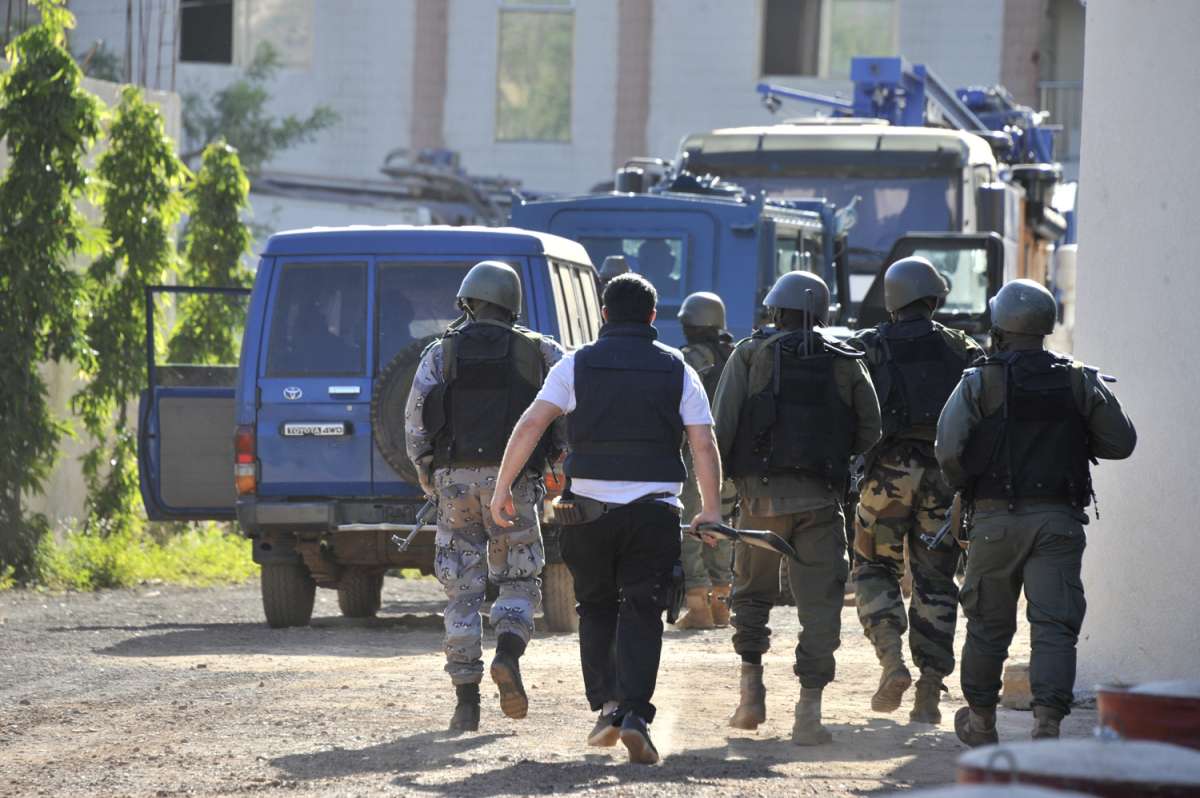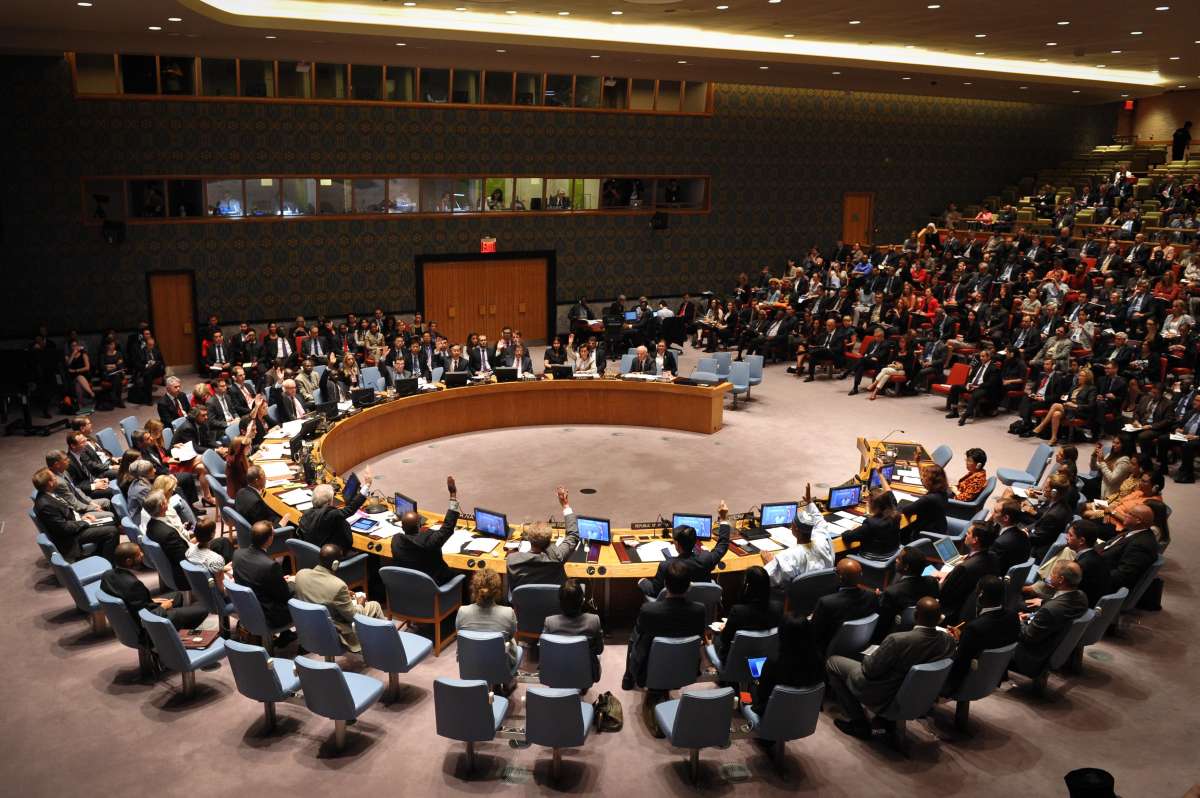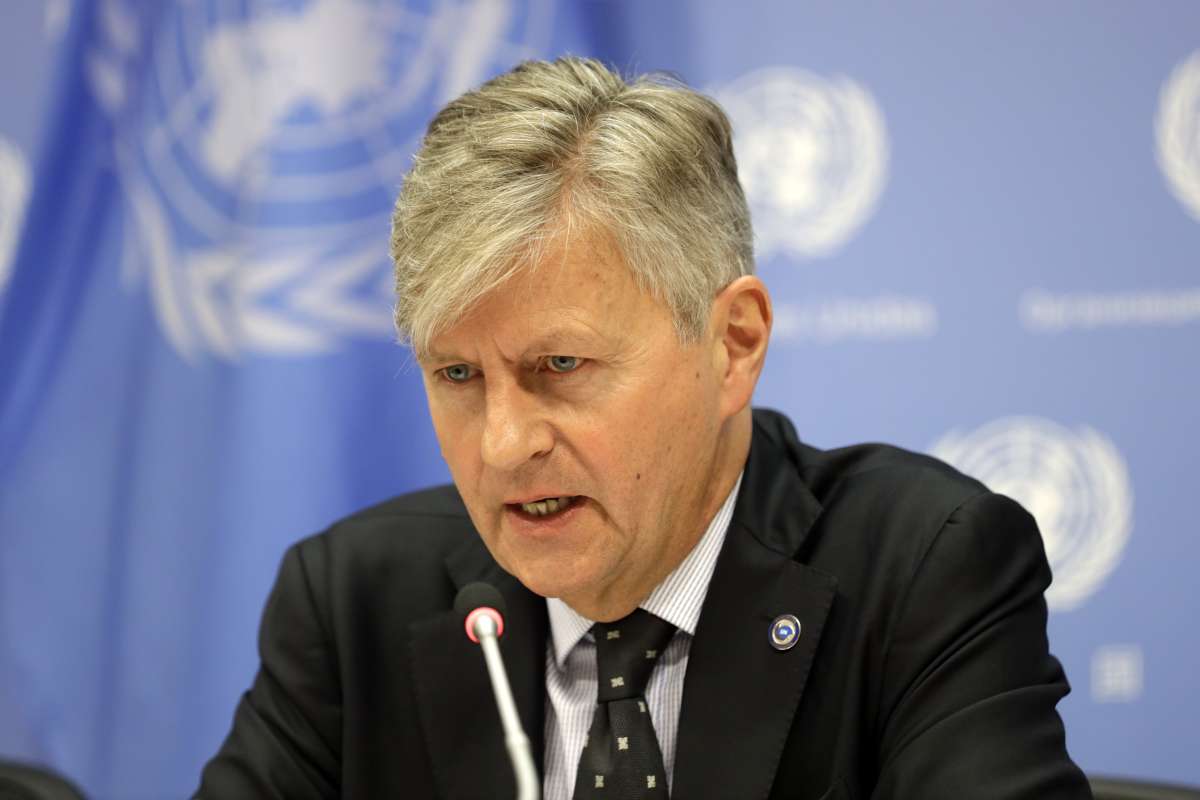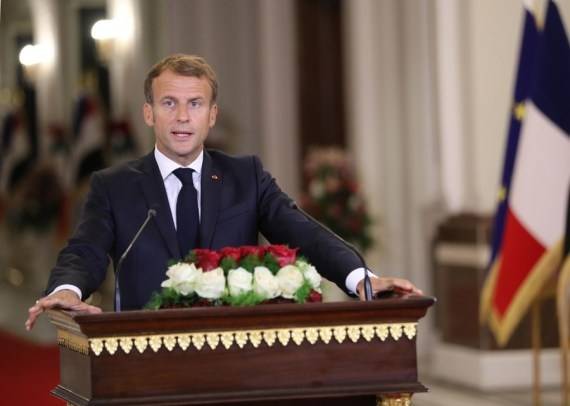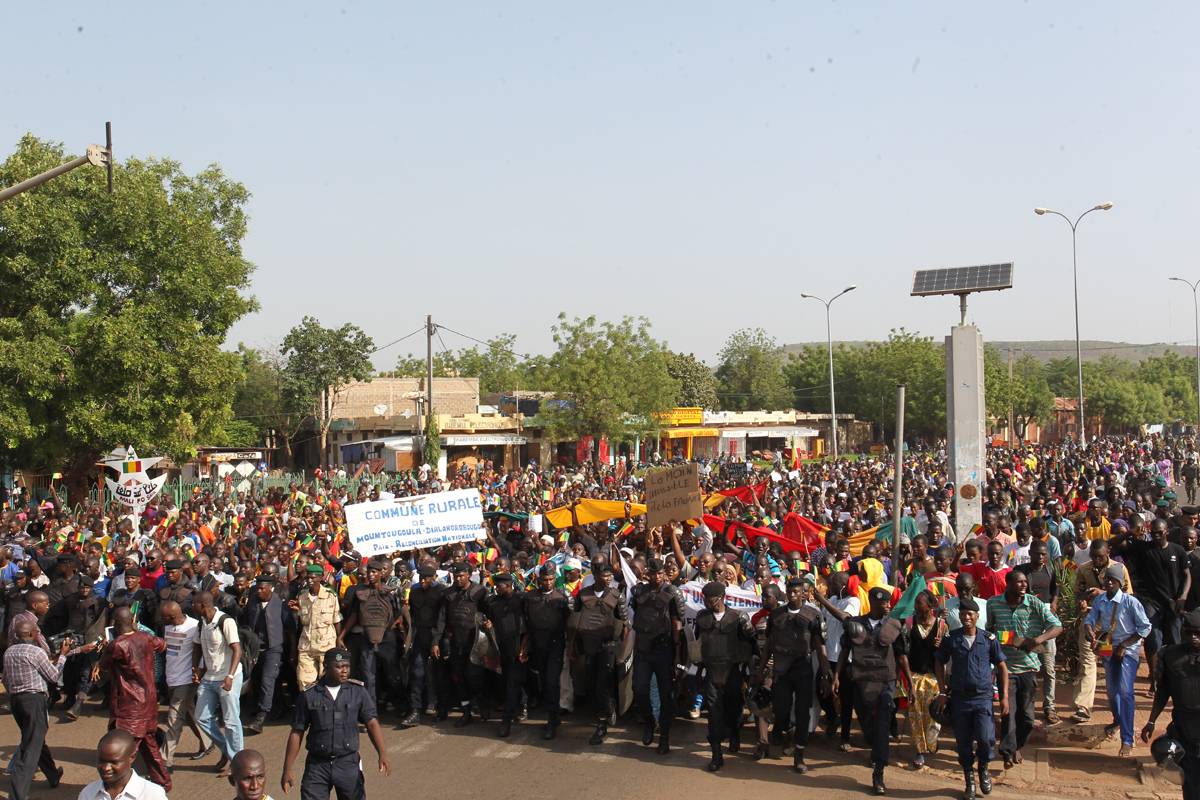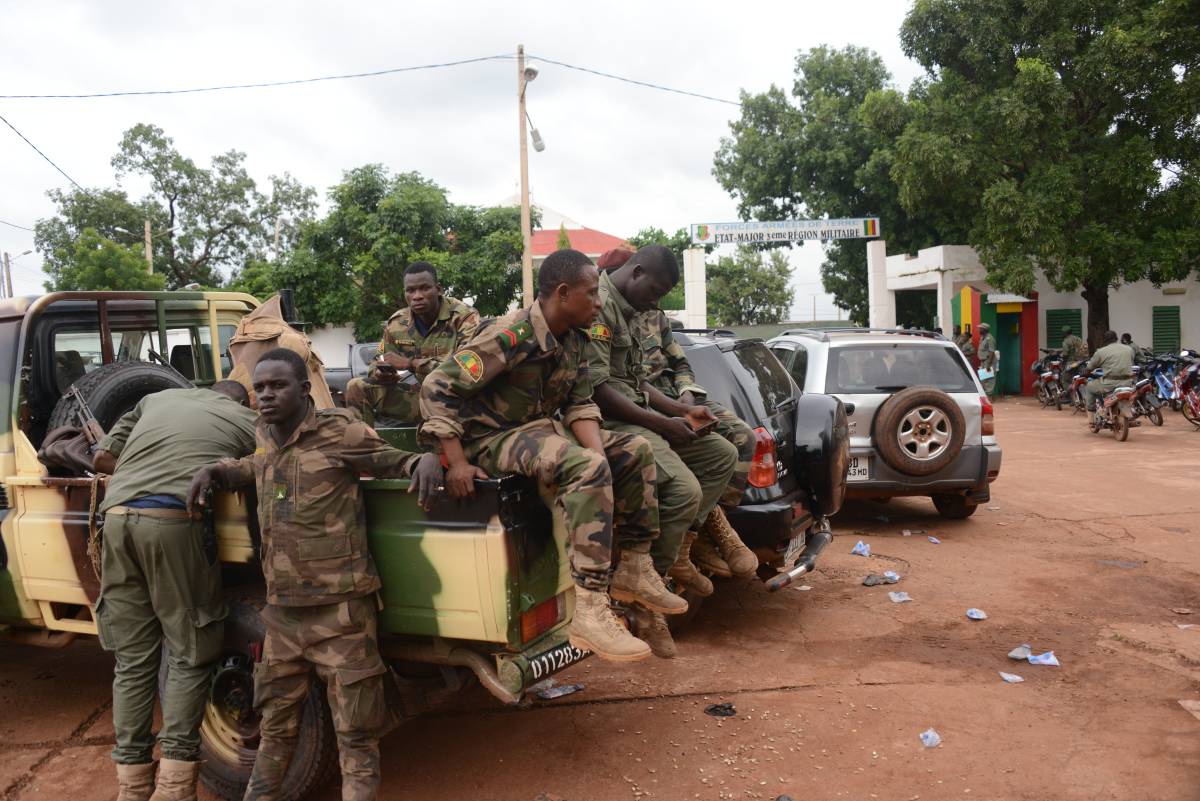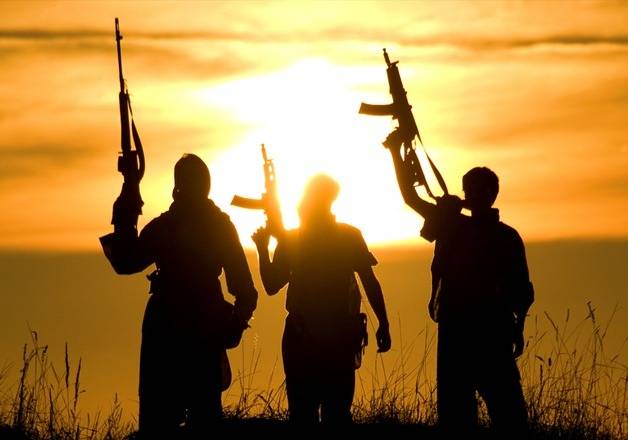The Liptako-Gourma region — where the Mali, Burkina Faso and Niger borders meet — has been ravaged by terrorism in recent years…reports Asian Lite News
The military leaders of Mali, Burkina Faso and Niger on Saturday signed a mutual defense pact, ministerial delegations from the three Sahel countries announced in Mali’s capital Bamako.
The Liptako-Gourma Charter establishes the Alliance of Sahel States (AES), Mali’s junta leader Assimi Goita posted on X, the social network formerly known as Twitter.
Its aim is to “establish an architecture of collective defense and mutual assistance for the benefit of our populations,” he wrote.
The Liptako-Gourma region — where the Mali, Burkina Faso and Niger borders meet — has been ravaged by terrorism in recent years.
“This alliance will be a combination of military and economic efforts between the three countries,” Mali’s Defense Minister Abdoulaye Diop told journalists.
“Our priority is the fight against terrorism in the three countries.”
A terrorist insurgency that erupted in northern Mali in 2012 spread to Niger and Burkina Faso in 2015.
All three countries have undergone coups since 2020, most recently Niger, where soldiers in July overthrew President Mohamed Bazoum.
The West African regional bloc ECOWAS has threatened to intervene militarily in Niger over the coup.
Mali and Burkina Faso quickly responded by saying that any such operation would be deemed a “declaration of war” against them.
The charter signed on Saturday binds the signatories to assist one another — including militarily — in the event of an attack on any one of them.
“Any attack on the sovereignty and territorial integrity of one or more contracting parties shall be considered as an aggression against the other parties and shall give rise to a duty of assistance… including the use of armed force to restore and ensure security,” it states.
It also binds the three countries to work to prevent or settle armed rebellions.
Mali has, in addition to fighting terrorists linked to Al Qaeda and the Daesh group, seen a resumption of hostilities by predominantly Tuareg armed groups over the past week.
The escalation risks testing an already stretched army as well as the junta’s claims that it has successfully turned around a dire security situation.
The successionist groups had in 2012 launched a rebellion before signing a peace agreement with the state in 2015. But that accord is now generally considered moribund.
‘French envoy being held hostage’
French President Emmanuel Macron aid that the French Ambassador to Niger and other French diplomats are “literally being held hostage at the French Embassy,” reported CNN.
France has been at odds with Niger’s new military leadership, after France’s refusal to accept the July 26 coup that toppled President Mohamed Bazoum, a French ally. French President Emmanuel Macron has continued to support Bazoum, who is still being held.
During Macron’s visit to the Golden Coast region in France, Macron said the embassy in Niamey is not getting food delivered to them.
“Food was prevented from being delivered” to the embassy in Niamey, and the ambassador was “eating military rations,” he said.
Macron further said that the French Ambassador to Niger, Sylvain Itte “cannot go out”, according to CNN.
Reportedly, the military junta ordered Itte to leave the country as soon as they seized control of the West African country in July.
However, later on, it revoked his visa and asked police to expel him, reported CNN.
According to Macron, he remained in place and the French authorities reiterated that they do not recognize the junta authorities, according to CNN.
When asked about bringing the ambassador back to France, Macron said that, “
Asked if he would work on bringing the ambassador back home, Macron emphasized “I will do whatever we agree on with President Mohamed Bazoum because he is the legitimate authority and I speak with him every day.”
Moreover, Itte is still working, according to French Foreign Minister Catherine Colonna, reported CNN.
Colonna in an interview said, “The ambassador is working, I can confirm that, and he is very useful through his contacts, his team, there is still a small team with him,” CNN reported.
She further said that Itte “will stay as long as we want him to stay” and his return will depend on Macron’s decision.
However, France is reportedly in discussions with the military of Niger over the possible withdrawal of its troops from the West African country due to the deterioration of relations following a coup in July, Al Jazeera reported citing French media reports.
Nicolas Normand, a former French ambassador to Mali and Senegal, confirmed the information to Al Jazeera, stating that, in accordance with his sources, negotiations to “partially” evacuate soldiers between the French and Niger forces were in progress.
The discussions between the two militaries, according to Normand’s source, should not be seen as a recognition of the coup leaders but rather as a “technical” discussion.
Thousands of people rallied for days in the capital Niamey in support of the new regime’s uncompromising attitude against the former colonial power and the coup leaders’ call for the French ambassador and military to leave Niger.
ALSO READ-Russia vetoes UNSC resolution on sanctions against Mali

